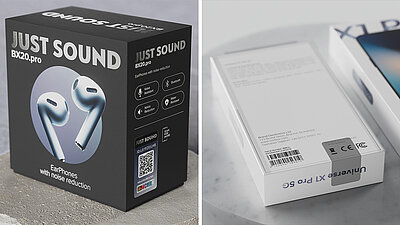Austria: Customs confiscates 237% more counterfeits in 2017

Total value of the confiscated pirated goods amounts to roughly 13.7 million euros
According to the recently published Austrian customs 2017 product piracy report, the number of confiscations decreased slightly last year in comparison to 2016, from 1,947 to 1,665 cases. At the same time, the number of confiscated counterfeits increased from almost 68,000 to around 246,000 articles. This represents a tremendous increase of approximately 237%. The total value of the confiscated pirated goods amounts to roughly 13.7 million euros.
Especially shocking for the Austrian customs officials was the high percentage of pharmaceutical counterfeits. Around 60% of all seized packages contained knock-off medications. In total, approximately 55,000 such articles were seized, which is more than the previous record-holding year of 2016 in which 53,000 pharmaceutical counterfeits were confiscated. Based on the price of the original products, the illegal imitations would have caused income losses of roughly 1.1 million euros for the pharmaceutical industry if they would have made it onto the market.
“Pharmaceutical counterfeits are the most dangerous form of product piracy”, commented MMag. DDr. Hubert Fuchs, State Secretary at the Ministry of Finance. “It’s not just the overall economic damages, but primarily the health risks caused by the consumption of counterfeited medications that are alarming.”
Counterfeiters seem to focus on pharmaceuticals, clothes and accessories

“Brand and product piracy endangers retailers, manufacturers, as well as the ability to compete, trade and make investments”, says State Secretary Fuchs; the role of the customs investigators in the fight against product piracy is correspondingly important. “Customs is fighting this problem at its root by taking counterfeit goods out of circulation before they can be spread around on the market.”
According to the report, most counterfeits seized at the Austrian border in 2017 originated in India and not in China, which was still the leader the previous year. The reason for this is the high percentage of confiscated pharmaceutical counterfeits, which enter the alpine republic almost solely from India. In general, the articles confiscated by the Austrian customs officials mainly originate from the Asian region as well as Turkey. The illegal goods entered Austria by post in roughly 90% of all cases.
Sources
Federal Ministry for Finances Austria, ORF
Article created in cooperation with the Anti-Piracy Analyst, April 2018 edition




